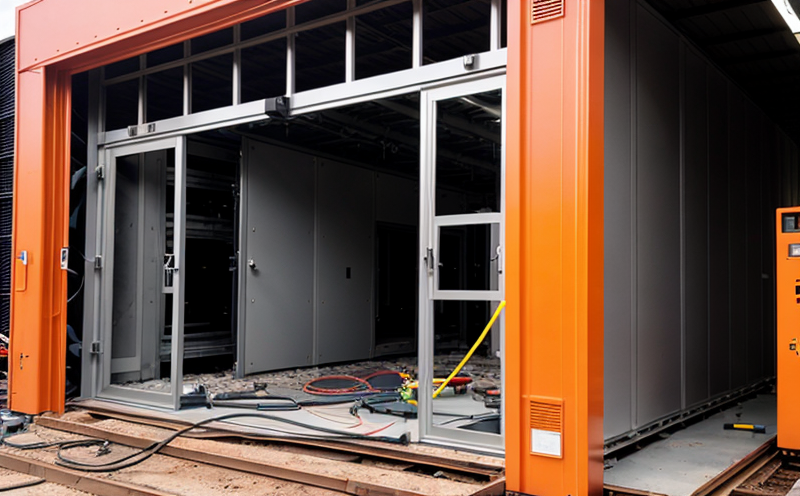KS C IEC 62619 Thermal Safety Testing of Industrial Lithium Batteries
The KS C IEC 62619 standard addresses thermal safety testing for industrial lithium batteries. This is critical as industrial applications often involve high power and long runtime, which can lead to overheating if not managed properly. The standard ensures that these batteries are safe under various thermal stress conditions.
The test aims to evaluate the performance of industrial lithium batteries in controlled thermal environments. It covers a range of scenarios from ambient temperature storage tests to forced air cooling and rapid heating/cooling cycles. This testing helps manufacturers ensure their products meet safety requirements while also preventing potential hazards that could arise due to battery failures.
The procedure involves placing the lithium battery under defined thermal conditions, monitoring its behavior, and evaluating whether it complies with specified criteria for temperature rise, voltage variation, internal resistance changes, and cell imbalance. Compliance with these parameters ensures reliable performance during normal operation as well as in case of unexpected situations like short circuits or overcharging.
For accurate results, precise temperature control systems are essential throughout the test duration. Additionally, real-time monitoring equipment such as thermocouples, data loggers, and infrared cameras provide critical insights into how each battery reacts under different thermal stresses. Proper specimen preparation is also crucial; this includes ensuring consistent initial charge levels, appropriate packaging materials, and adherence to specified dimensions.
Once testing concludes, detailed reports are generated summarizing all observations made during the experiment including any deviations from expected behavior or performance issues that were encountered. These documents serve as valuable resources for both regulatory compliance purposes as well as internal quality assurance efforts within manufacturing plants.
Applied Standards
| Standard | Description |
|---|---|
| KS C IEC 62619:2017 | Thermal safety of rechargeable industrial lithium batteries, including testing methods and acceptance criteria. |
| IEC 62619:2018 | International equivalent standard for thermal safety assessment of industrial lithium cells and batteries. |
Industry Applications
- Battery manufacturers looking to ensure product safety before release into market.
- R&D departments aiming to improve battery designs for better thermal stability and longevity.
- Quality control teams responsible for verifying that newly produced batches meet specified performance standards.
- Procurement specialists ensuring suppliers comply with industry best practices regarding material selection and manufacturing processes.
Why Choose This Test
- The test provides comprehensive evaluation of thermal behavior which is crucial for industrial applications where batteries operate continuously under demanding conditions.
- It helps identify potential weaknesses early in the development process, allowing companies to address issues proactively rather than reactively after a failure occurs.
- Compliance with this standard ensures adherence to global regulatory requirements, thus facilitating international trade without additional certification processes.





